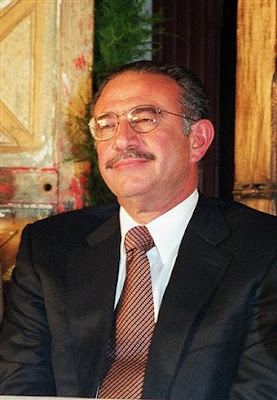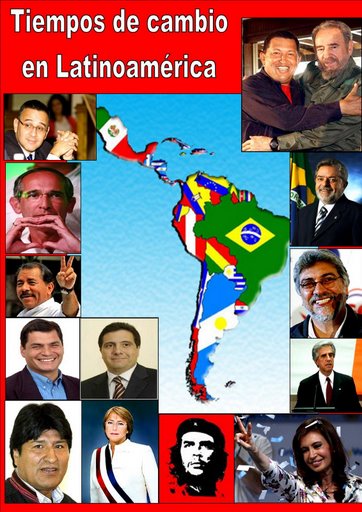
Hoy 12 de Noviembre la Corte Suprema de El Salvador de manera arrebatada y oscura anuló una sentencia de una corte de Miami en contra de Oscar Antonio Safie Sacarias, primo de Felix Garrid Safie, Fiscal General de El Salvador. La sentencia de la corte estadounidense obligaba a Oscar Safie a pagar una multa de 30 millones de dólares por préstamos morosos y no cumplimiento de sus obligaciones financieras en Estados Unidos.
La sorpresiva medida de la Corte Suprema de El Salvador para proteger a Oscar Safie ha desatado fuertes señalamientos contra el sistema judicial y la transparencia de las leyes en El Salvador.
Un periódico de Miami publicó esta tarde algunas de las reacciones de ciudadanos estadounidenses en relación a esta insólita noticia. Los comentarios usan líneas sarcásticas como: " Que sorpresa, no te suena esta medida a "República Bananera"? Me pregunto cuánto le pagaron al juez (en El Salvador) , típica corrupción latinoamericana!, Hasta comentarios fuertes como "no dejemos entras mas salvadoreños a Estados Unidos hasta que este tipo pague su multa como lo ordenó la corte de Miami.
Veamos entonces cómo, si es que lo hacen, reportan esta noticia El Diario de Hoy, La Prensa Gráfica y los demás medios comerciales de comunicación de El Salvador.
Y esperemos a ver que dice el presidente Saca sobre esta "pequeña" noticia de solamente 30 millones de dólares de otro de los "grandes" empresarios del país.
Pedimos a nuestros lectores y a los medios alternativos sin censura ampliar y circular esta informacion.
Izote News.--NOTICIAS EN ESTADOS UNIDOS:
El Salvador court rules for local tycoon
SAN SALVADOR, El Salvador, Nov. 12 (UPI) -- The highest court in El Salvador has ruled that one of the country's richest men does not have to pay a $30 million financial judgment in Florida.
Oscar Antonio Safie Sacarias, his wife and some other relatives face contempt charges in the United States for ignoring a court order, The Miami Herald reported.
Safie, who owns a large hotel in San Salvador and made a fortune in media and textile manufacturing, is the first cousin of El Salvador's attorney general. Leo de la Pena, who represents Valat International Holdings, the Irish company that won the $30 million judgment, charges that Safie's money and connections helped him win a favorable ruling from his country's Supreme Court.
Valat sued three of Safie's companies in 2004. Valat, which had taken over a failed U.S. bank, the Hamilton Bank, claimed that Safie's businesses had stopped making payments on lines of credit.
The suit was filed in Miami because Valat said Safie had assets in the United States. Safie has claimed he has no U.S. assets, which could bring a perjury charge.
COMMENTS:
Don't let allow any people from El salvdor into the U.S. until he pays the Miami courts judgment. That country has no respect for us.
So ? Someone is surprised ? Does the phrase "Banana Republic" strike a chord ?
I wonder how much the Salvadoran judge got paid off???????Typical corrupt Latin American countries.
Mogul needn't pay Miami-Dade settlement, Salvador court rules
El Salvador's Supreme Court has ruled that a wealthy defendant does not have to pay a $30 million judgment issued by a Miami-Dade circuit judge.
BY GERARDO REYESEl
Nuevo Herald
The Supreme Court of El Salvador has ruled that Oscar Antonio Safie Sacarias, one of the richest and most influential men in El Salvador, does not have to pay a $30 million judgment ordered by a Miami-Dade Circuit Court judge.
The Salvadoran ruling also covers several of Safie's family members, and has been met by accusations of manipulation and favoritism.
In the United States, warrants have been issued for the arrest of Safie and the family members.
They are accused of being in contempt of the Miami-Dade court, and they could face perjury charges for saying they had no bank accounts in the United States, according to court documents obtained by El Nuevo Herald.
Safie is a Salvadoran media and textile mogul.
He owns of one of the most prominent hotels in El Salvador's capital, San Salvador. And he is the first cousin of El Salvador's attorney general, Felix Garrid Safie.
In October 2006, Miami-Dade Circuit Judge Mindy S. Glazer ordered the Safie business group to pay $30 million to Valat International Holding, an Irish financial firm that had arranged through the Federal Deposit Insurance Corp. to purchase and restructure the debt of the failed Hamilton Bank.
In 2004, Valat sued three companies owned by Safie -- El Salvador Networks, Rayones de El Salvador and Hilanderias de Exportacion -- after they stopped making interest payments on a line of credit and failed to make good on two other lines of credit.
Valat sued in Miami because, it argued, Safie's business group held bank accounts in the United States. Safie's companies denied this, and their attorneys tried to settle the dispute in El Salvador.
In September 2006, Glazer ruled against the three Salvadoran companies, Safie, his wife, Leyla Emilia, his son and Beatriz Eugenia Safie, who signed personal guarantees for the funds.
According to Miami court documents, the defendants failed to appear in court and refused to cooperate with the proceedings. This led to the arrest warrants being issued.Valat attorney Leo de la Peña said Safie used his influence and money to ''manipulate the court'' in El Salvador, but provided no details of the alleged manipulation.
In its 2 ½-page decision, the Salvadoran court said the Miami-Dade ruling was invalid because it failed to provide a recourse for Safie and his co-defendants to appeal. However, documents presented by the Miami attorneys for Valat showed that the case had already been appealed, and that the award was upheld.''
The argument is false and shameless,'' de la Peña said.
The Salvadoran Supreme Court justice for civil matters, Ulises Guzman, told El Nuevo Herald he was surprised that his colleagues had ruled in his absence.
''I'm finding out from you guys. I'm the first one surprised. That case should have lasted a few more weeks. I thought there were still more discussions to occur,'' he said Monday.
Guzman said he was traveling abroad Oct. 16, the date of the ruling.None of the other Salvadoran justices were available for comment.
Valat said it planned to appeal the ruling in El Salvador, and that it would provide evidence that the Florida ruling was final and that no appeals were pending in the United States.

No hay comentarios:
Publicar un comentario